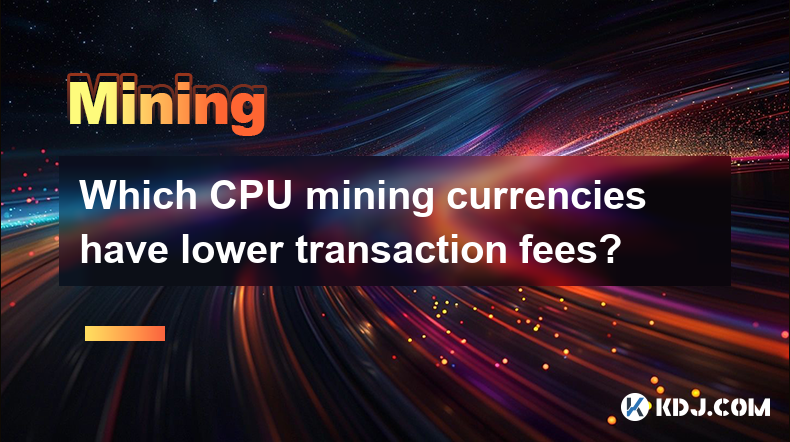-
 Bitcoin
Bitcoin $84,993.8786
0.34% -
 Ethereum
Ethereum $1,599.9353
1.27% -
 Tether USDt
Tether USDt $0.9999
-0.01% -
 XRP
XRP $2.0813
0.78% -
 BNB
BNB $592.4105
0.82% -
 Solana
Solana $138.1937
3.17% -
 USDC
USDC $1.0000
0.00% -
 Dogecoin
Dogecoin $0.1589
2.71% -
 TRON
TRON $0.2413
-1.55% -
 Cardano
Cardano $0.6307
2.60% -
 UNUS SED LEO
UNUS SED LEO $9.3881
1.71% -
 Chainlink
Chainlink $12.8366
1.65% -
 Avalanche
Avalanche $19.2740
1.26% -
 Stellar
Stellar $0.2445
1.24% -
 Toncoin
Toncoin $2.9868
-0.07% -
 Shiba Inu
Shiba Inu $0.0...01221
3.10% -
 Hedera
Hedera $0.1669
0.87% -
 Sui
Sui $2.1351
1.39% -
 Bitcoin Cash
Bitcoin Cash $336.8750
2.70% -
 Hyperliquid
Hyperliquid $18.0804
6.57% -
 Polkadot
Polkadot $3.7246
1.15% -
 Litecoin
Litecoin $76.4144
1.52% -
 Dai
Dai $0.9999
0.00% -
 Bitget Token
Bitget Token $4.4597
2.23% -
 Ethena USDe
Ethena USDe $0.9992
0.00% -
 Pi
Pi $0.6437
5.71% -
 Monero
Monero $212.9449
-1.50% -
 Uniswap
Uniswap $5.2448
1.29% -
 Pepe
Pepe $0.0...07289
2.88% -
 OKB
OKB $50.8316
2.01%
Which CPU mining currencies have lower transaction fees?
CPU-mineable cryptocurrencies like Monero, Bytecoin, and AEON often have lower transaction fees due to less network congestion, but fees can fluctuate based on network activity and the coin's design.
Mar 23, 2025 at 08:14 pm

Key Points:
- Certain cryptocurrencies, due to their consensus mechanisms and network design, inherently have lower transaction fees than others.
- CPU mining is generally limited to less resource-intensive cryptocurrencies, often those with lower transaction fees.
- The relationship between CPU mineable coin and transaction fees is complex, influenced by network congestion and other factors.
- Choosing a coin with low transaction fees for CPU mining depends on your hardware, electricity costs, and the coin's overall profitability.
Which CPU mining currencies have lower transaction fees?
The question of which CPU-mineable cryptocurrencies boast the lowest transaction fees is multifaceted. It's not a simple case of picking one coin over another, as various factors interact to determine the final cost. The type of consensus mechanism used by a cryptocurrency plays a critical role. Proof-of-Work (PoW) coins, often mineable by CPUs, can experience fluctuating transaction fees depending on network congestion. Proof-of-Stake (PoS) coins, generally not CPU mineable, often have lower transaction fees due to their different validation method.
The inherent design of the cryptocurrency's blockchain significantly impacts transaction fees. Some blockchains are designed for faster transactions with lower fees, even under high network load, while others may suffer from congestion leading to higher costs. This design is often reflected in the choice of consensus mechanism and the block size limits. A smaller block size can result in higher fees as more transactions compete for space within a block.
Focusing specifically on CPU-mineable cryptocurrencies, we need to consider those that are less computationally demanding. This is because CPU mining is generally less efficient than GPU or ASIC mining, making it suitable only for coins with simpler algorithms. These coins, often smaller and less established, tend to have less network traffic, resulting in lower transaction fees. However, this is not always a guarantee. Even with low network activity, the inherent fee structure of the coin itself can still impact the final cost.
Let's explore some examples of cryptocurrencies that are, or have been, mineable with CPUs and generally exhibit lower transaction fees (though this is subject to change):
- Monero (XMR): While Monero's mining has shifted towards more specialized hardware, it remains partially accessible to CPU miners. It employs CryptoNight, an algorithm resistant to ASICs, making CPU mining viable, though less efficient. Transaction fees on Monero are generally quite low. However, network congestion can still affect fees.
- Bytecoin (BCN): Bytecoin utilizes the CryptoNight algorithm, similar to Monero. It has also historically been mineable with CPUs, although its profitability has declined. Transaction fees on Bytecoin are typically modest. However, its market capitalization is relatively small, impacting the frequency of transactions and hence fee levels.
- AEON (AEON): AEON, another CryptoNight-based coin, was once considered a CPU-mineable option. Its transaction fees have generally been reported as low, but it's important to remember that its network activity is lower compared to larger cryptocurrencies.
- Other CryptoNight-based coins: Several lesser-known CryptoNight-based coins have existed and may still exist. It's crucial to research their current state, mining profitability, and transaction fees before investing any effort.
How to choose a CPU-mineable coin with lower transaction fees:
Choosing the right coin involves careful consideration of several factors:
- Research the cryptocurrency's transaction fee structure: Examine the coin's documentation and online resources to understand how its fees are calculated and what factors influence them.
- Monitor network activity: A coin with high network activity will likely have higher transaction fees, even if its base fee is low. Use blockchain explorers to check the current transaction volume.
- Consider mining difficulty: High mining difficulty means more competition and less profitability, even if transaction fees are low.
- Analyze profitability: Calculate the potential earnings from mining, considering electricity costs and the current value of the cryptocurrency. This should be weighed against the transaction fees.
Common Questions:
Q: Are transaction fees always low for CPU-mineable coins?
A: No, while many CPU-mineable coins tend to have lower transaction fees due to lower network activity, this is not guaranteed. Network congestion, the coin's fee structure, and overall market conditions can all affect transaction costs.
Q: Can I mine Bitcoin with a CPU?
A: While technically possible, mining Bitcoin with a CPU is highly impractical and unprofitable due to its high mining difficulty and the use of specialized ASICs by most miners.
Q: How often do transaction fees change for these cryptocurrencies?
A: Transaction fees for cryptocurrencies can fluctuate frequently depending on network congestion and other factors. It's crucial to monitor these fees regularly.
Q: Are there any risks associated with CPU mining?
A: Yes, there are risks associated with CPU mining, including the potential for low profitability, hardware damage from overheating, and the volatility of cryptocurrency prices.
This information is for educational purposes only and should not be considered financial advice. Always conduct thorough research before participating in any cryptocurrency activity.
Disclaimer:info@kdj.com
The information provided is not trading advice. kdj.com does not assume any responsibility for any investments made based on the information provided in this article. Cryptocurrencies are highly volatile and it is highly recommended that you invest with caution after thorough research!
If you believe that the content used on this website infringes your copyright, please contact us immediately (info@kdj.com) and we will delete it promptly.
- Codename:Pepe dips 30% from March highs, sparking investor interest in Codename:Pepe's AI-powered alternative.
- 2025-04-19 14:20:14
- Despite Its Elevated Position as the World's Premier Meme Coin, Dogecoin (DOGE) Has Been Struggling
- 2025-04-19 14:20:13
- Market Update: Crypto Market Remains Steady at $2.79 Trillion with Minimal 0.14% Growth
- 2025-04-19 14:15:13
- Can Mantra (OM) Bounce Back? How High Can the Price Go After 90% Crash?
- 2025-04-19 14:15:13
- President Donald Trump Said at a 2024 Campaign Event That He Wanted All Remaining Bitcoin
- 2025-04-19 14:10:13
- Qubetics ($TICS): The New Frontier in Blockchain Interoperability
- 2025-04-19 14:10:13
Related knowledge

How to judge the stability and reliability of the mining pool?
Apr 19,2025 at 02:08pm
When engaging in cryptocurrency mining, choosing the right mining pool is crucial for maximizing your returns and ensuring a stable mining experience. The stability and reliability of a mining pool can significantly impact your overall success in mining. Here, we will explore the key factors to consider when evaluating the stability and reliability of a...

How to deal with abnormal noise during mining machine operation?
Apr 17,2025 at 01:35am
Mining machines are essential tools for cryptocurrency miners, but they can sometimes produce abnormal noises that may indicate underlying issues. Understanding how to identify and address these noises is crucial for maintaining the efficiency and longevity of your mining equipment. This article will guide you through the process of dealing with abnorma...

How to maintain anonymity when mining?
Apr 17,2025 at 06:01pm
Maintaining anonymity when mining cryptocurrencies is crucial for many miners who wish to protect their privacy and security. This article will guide you through various strategies and tools that can help you achieve a high level of anonymity while engaging in mining activities. Understanding the Importance of Anonymity in MiningAnonymity in the context...

How to automate mining tasks through scripts?
Apr 18,2025 at 01:29pm
In the world of cryptocurrency, mining remains a crucial activity for generating new coins and securing blockchain networks. Automating mining tasks through scripts can significantly enhance efficiency and reduce manual labor. This article delves into the intricacies of automating mining tasks, providing a comprehensive guide on how to achieve this usin...

How to switch mining algorithms in the mining pool?
Apr 18,2025 at 12:00pm
Switching mining algorithms in a mining pool can be a strategic move for miners looking to optimize their mining operations. This process involves several steps and considerations, and understanding how to navigate it can significantly impact a miner's efficiency and profitability. In this article, we will explore the detailed steps required to switch m...

How to avoid reduced income due to network delays when mining?
Apr 19,2025 at 12:14am
Mining cryptocurrencies can be a lucrative endeavor, but it comes with its own set of challenges, one of which is network delays. These delays can significantly impact your mining income by causing you to miss out on block rewards and transaction fees. In this article, we will explore various strategies to mitigate the effects of network delays and ensu...

How to judge the stability and reliability of the mining pool?
Apr 19,2025 at 02:08pm
When engaging in cryptocurrency mining, choosing the right mining pool is crucial for maximizing your returns and ensuring a stable mining experience. The stability and reliability of a mining pool can significantly impact your overall success in mining. Here, we will explore the key factors to consider when evaluating the stability and reliability of a...

How to deal with abnormal noise during mining machine operation?
Apr 17,2025 at 01:35am
Mining machines are essential tools for cryptocurrency miners, but they can sometimes produce abnormal noises that may indicate underlying issues. Understanding how to identify and address these noises is crucial for maintaining the efficiency and longevity of your mining equipment. This article will guide you through the process of dealing with abnorma...

How to maintain anonymity when mining?
Apr 17,2025 at 06:01pm
Maintaining anonymity when mining cryptocurrencies is crucial for many miners who wish to protect their privacy and security. This article will guide you through various strategies and tools that can help you achieve a high level of anonymity while engaging in mining activities. Understanding the Importance of Anonymity in MiningAnonymity in the context...

How to automate mining tasks through scripts?
Apr 18,2025 at 01:29pm
In the world of cryptocurrency, mining remains a crucial activity for generating new coins and securing blockchain networks. Automating mining tasks through scripts can significantly enhance efficiency and reduce manual labor. This article delves into the intricacies of automating mining tasks, providing a comprehensive guide on how to achieve this usin...

How to switch mining algorithms in the mining pool?
Apr 18,2025 at 12:00pm
Switching mining algorithms in a mining pool can be a strategic move for miners looking to optimize their mining operations. This process involves several steps and considerations, and understanding how to navigate it can significantly impact a miner's efficiency and profitability. In this article, we will explore the detailed steps required to switch m...

How to avoid reduced income due to network delays when mining?
Apr 19,2025 at 12:14am
Mining cryptocurrencies can be a lucrative endeavor, but it comes with its own set of challenges, one of which is network delays. These delays can significantly impact your mining income by causing you to miss out on block rewards and transaction fees. In this article, we will explore various strategies to mitigate the effects of network delays and ensu...
See all articles
























































































